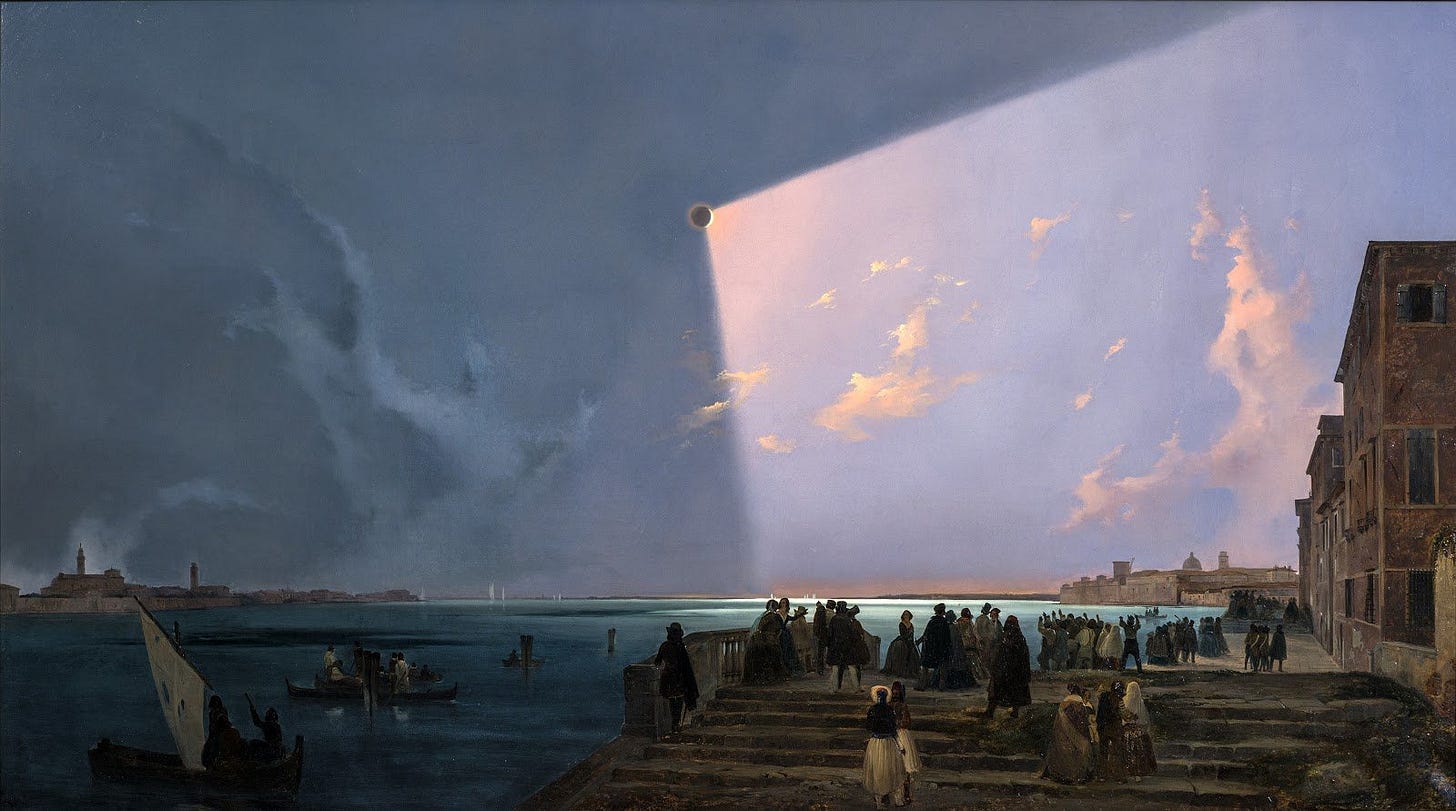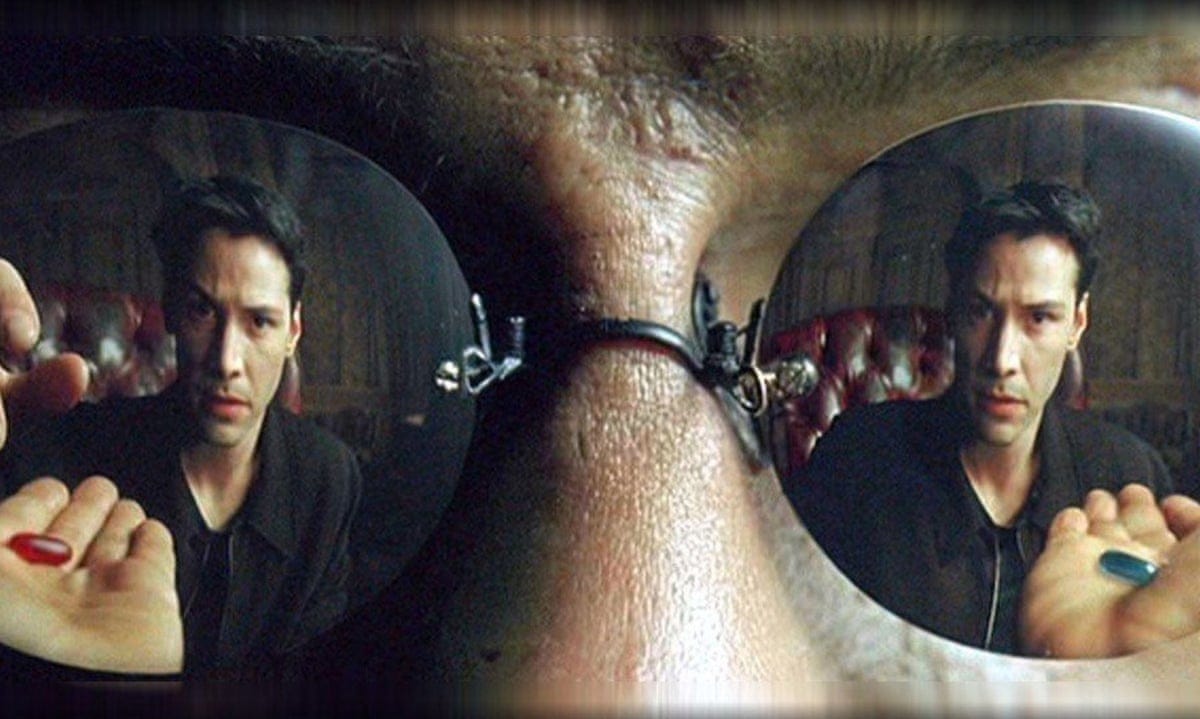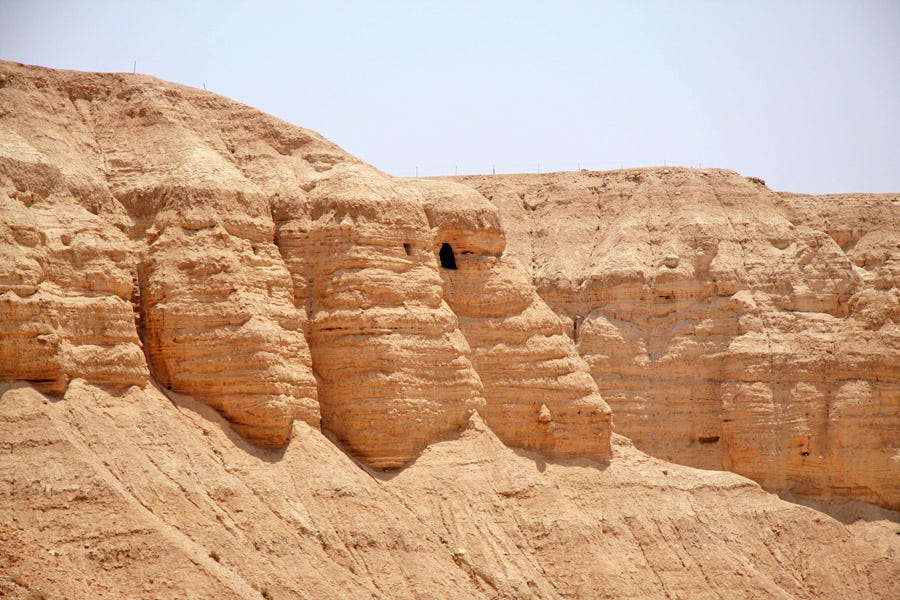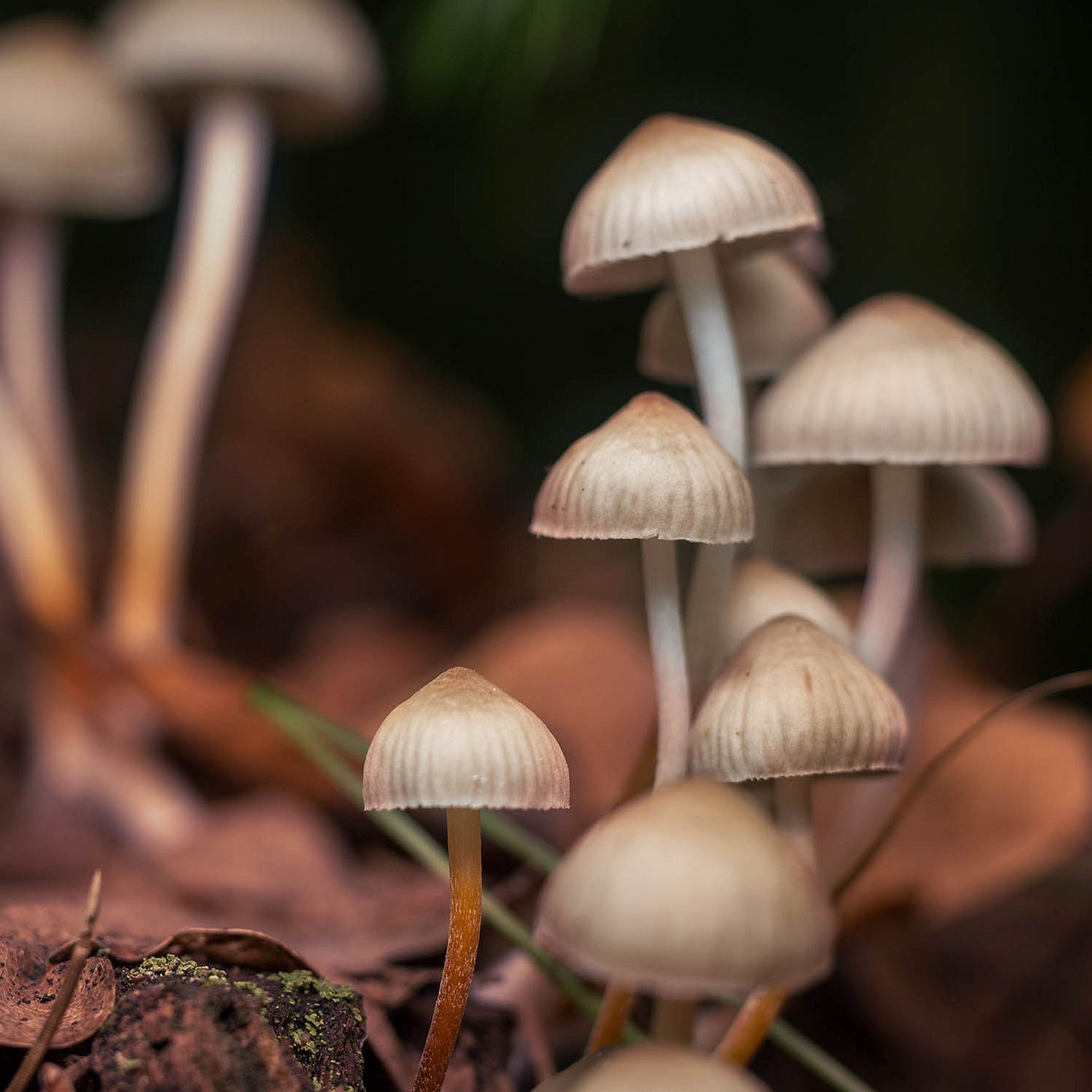The path to psychedelic Judaism runs through Jews who don't use psychedelics
Normalization cannot mean getting everyone to do drugs.
One of the things I say frequently is that I’d like to see psychedelics normalized within Judaism.
Saying this is always a little scary, because if I don’t immediately explain what I mean people assume I have a bunch of LSD in a backpack and am about to hand out free samples. (I don’t.)
There is certainly a long history of psychedelic advocates pushing widespread use. I am not among them. This isn’t just because such evangelizing could easily backfire (in fact, it did), but because I genuinely don’t think that psychedelics are the right tool for everyone. While legalization advocates have an incentive to emphasize their unique importance (“if X isn’t legalized then Y group can’t do Z!”), they are ultimately just one tool among many. Many people live healthy and fulfilling lives without ever consuming a psychedelic substance.
At the same time, banning psychedelics and marginalizing discourse about them can indeed have negative effects. For some people these substances serve a vital therapeutic or spiritual function that no other substance or practice could easily fulfill—and while the path to FDA-approved treatments is currently murky, it is still a real possibility. Yes, they’re just a tool—but for some people they’re the right tool. Given that the harm potential of psychedelics tends to lower than that of legal substances like tobacco and alcohol,1 I tend to think that the upside of legalization outweighs the downside.

But while legalization is necessary for normalization, it it not at all the same thing. When I say normalization, I mean social environments where the recreational, clinical, and spiritual properties of psychedelics can be discussed openly, where communities and their leaders understand best practices for use, where the benefits and dangers of psychedelics are well understood, and where educators have the resources they need to understand psychedelics.
In short: normalizing psychedelics means better transparency, better safety, better knowledge, and better practices.
The big question: why should non-users care?
Now, I think it’s fair to say that most Jewish psychedelics users would like to see normalization happen. The problem is that if you’re not evangelizing drug use your only tool for doing this is words; specifically, you need to make the case that non-users should support the open discussion of substances that they personally do not intend to take.
The existence of these non-users is a hard fact that users don’t always take into account. Even without an interest in evangelizing, the energy inside psychedelic communities can make it feel like the world is just on the verge of waking up. While it is true that we’ll probably seen increased use, psychedelics just aren’t for everyone and they never will be. For some they are positively dangerous, and many others simply don’t want to. Some psychedelics cannot be safely consumed while taking antidepressants. Even for those who are curious, it may be months or years until they are in a personal/professional place where they feel comfortable doing something that could very well upend their life.
The permanence of non-users weighs inconveniently on psychedelic advocates. Even assuming that most non-users are largely neutral on psychedelics (in my experience we’re largely past Just Say No and most don’t have much knowledge about them at all), asking communities to devote resources to educating people about substances that are—let’s remember—mostly still illegal is a hard sell. An individual Jewish leader may even see the value in these substances, but convincing their organization (and their funders) that they should spend time or money is quite a bit more difficult.
The normalization of psychedelics requires a strong argument that psychedelics should be everybody’s concern.
So, how exactly do you do that?
Queer Judaism suggests a path for psychedelic Judaism
To understand how psychedelic Judaism might come to be everyone’s concern, consider another subgroup: LGBTQ Jews.
Most Jews are not part of this community; however defined, queer Jews will always be in the minority. Much of the discrimination that queer Jews feel in Jewish spaces flows directly from this fact—and because of this discrimination, queer Jews (like queer people generally) have frequently self-organized to provide guidance and support for their own.
In the face of persecution, queer Jews who care about Torah have often turn inward. The point of queer Torah, in one narrow understanding, is to help queer Jews find a place for themselves within the tradition. To the extent that straight Jews need to hear queer Torah, it is merely to demonstrate that queer Jews are serious and deserving of toleration (or, ideally, full acceptance)—or perhaps to make an argument for a policy change. In this model, queer Jews demand nothing from nothing straight Jews but toleration.
This is a reasonable position, and queer Jews are certainly under no obligation to justify their utility to anyone. However, it allows straight Jews to continue maintaining that queer Jews are deviants, deserving of respect on humanitarian grounds but ultimately abnormal. Many queer Jewish thinkers push back against this idea (if you have time, read Jamie Weisbach’s argument for wearing a chest binder in a mikveh, it’s a stellar piece of work). Yes, queer Jews are a minority—but they’re a minority whose very existence requires everyone to update their understanding of healthy relationships and parenting roles and childhood. Properly appreciated, queer Judaism should open everyone up to the sheer variety of ways in which people can love one another, understand their own bodies, and construct family. These are messages that matter to all. (This, for me, was one of the reasons that it was so important to publish Noam Sienna’s A Rainbow Thread.)
Psychedelic use is not an identity like queerness, but in this case it exhibits similar dynamics. Like queerness, psychedelic use lends itself to certain types of conversations that non-users may simply not have the life experience to fully understand—and psychedelic users, like queer Jews, have good reason to be circumspect about their activities and ways of thinking. There is a version of psychedelic Judaism that demands nothing from non-users but toleration: Respect us enough to leave us to our own devices.
But the insights of psychedelic use matter for everyone. Psychedelics can quickly and powerfully grant people insight about the subjectiveness of consciousness, the fragility of ego, internal dialogue, addiction, sense, pain and pleasure, desire, ritual, emotional processing, and even death. They can give people powerful spiritual experiences—and also make people wonder about the relationship between those experiences and the God-language that particular faiths choose to use. Perhaps most counter-intuitively, their use in religious contexts tends to be more highly ritualized and more communal than simple recreational use, which creates an environment where responsible use is encouraged and people struggling can get support.2 By engendering conversations about these things, Jewish psychedelic users can provide wisdom that benefits the Jewish community at large. (In fact, they have probably already done this but we don’t know because we haven’t done the historical research.)
So, the pitch to Jewish non-users goes like this: Even if you remain stone cold sober for your entire life, your community will shine brighter through the experiences of its psychedelic users. Its emotional processing will be richer, its text study will be deeper, it will be open to more learning modalities, and its spiritual practices will be more creative. (Also, not for nothing, for Jewish psychedelic users are energized. They’re excited about the future. Who wouldn’t want a piece of that energy?) All these things can accrue—but only if usage is generally safe, only if users feel comfortable talking to you, and only inside the framework that psychedelic Torah is Torah for all.
This all might sound nice in theory, but it’s quite difficult. It is hard talking to people who aren’t like you; as in other areas of life, it’s easier to stick with your own kind. The one silver lining? Despite self-organizing around substances, and despite how many times I have written “user” and “non-user” in this post, psychedelic use tends not to be totalizing. Its insights, despite their ostensible ineffability, lend themselves well to communication. This suggests that meaningful communication between users and non-users doesn’t need to be so difficult.
The paradoxical humility of the magic mushroom
Have you heard this one before?
A man rubs a magic lamp and the genie inside presents him with two options: great wisdom or great wealth. The man chooses wisdom. He instantly gets his wish.
The first words out of his mouth: “I should have taken the money.”
For me, this sums up the beautiful paradox of psychedelics. Taking a psychedelic can be one of the most powerful experiences of your life—but that experience may actually lead you away from using the substance in the future. This is markedly different from (say) fentanyl or cocaine, where an overwhelmingly positive experience can lead people to chase that first-use feeling for years, often destroying lives even as the positive feelings fade away and one is left staving off withdrawal.
While psychedelics experiences are often euphoric, most users do not conclude their experiences wishing to take more at the earliest opportunity. The substance, in retrospect, is beside the point. The point is existing in this world.
Consider the loosening of the sense of self that magic mushrooms frequently provide. Few people would want to live perpetually in this state; it is not inherently pleasurable, and on occasion can be quite frightening. Still, the very knowledge of this state’s existence changes how one sees the world. The sense of self loses some of its stickiness; it remains useful for daily life, but one now knows that ego is contingent.
Did the mushroom cause this state? Yes—but many psychedelic users would tell you that the state exists outside of the mushroom. The substance is giving you access to truth that is ordinarily blocked from view by your own self. The “trip” metaphor is actually useful here. Most Americans who fly to Paris for vacation come away primarily impressed by Paris, not the airplane that took them there—even if almost all Americans who go to Paris get there by airplane.
If it’s hard to see this point, it’s because the legal status of psychedelics forces them into the spotlight for both detractors and advocates. (If airplanes were illegal you’d probably talk about airplanes a lot more, too!) I don’t think this is the correct space for them, and under a different legal regime the way we talk about these substances might look quite different.
I believe that this self-decentering property of psychedelics is key to broad communal acceptance. You might assume that normalization would mean people are just talking about drugs all the time, but this is not the case (just as normalizing queer Jews doesn’t mean talking about sex and/or genitals all the same). For both users and non-users, psychedelics are primarily interesting for their ability to help people understand themselves and the universe. Some want these understandings firsthand; others want them vicariously. Jewish communities would be better off if both options were broadly available.
A pact for users and non-users
If psychedelics are going to be normalized within Jewish communities, it will require something from both users and non-users.
Psychedelic Jews and Jewish groups must learn how to communicate their insights to others. They should not assume that the world is divided between users and not-yet-users and focus on the insights gained from substances rather than the substances themselves. They must perform the scary task of being open about their psychedelic use and how it affects their lives and ways of thinking. Most importantly, psychedelic Jewish communities need to remain safe places and demonstrate their ability to self-regulate; nothing will scare people off more than the perception that psychedelics are dangerous—and non-users may not give the benefit of the doubt if there is a high-profile tragedy.
For their part, non-users should remain open and listen. If you’re a Jewish leader who has never used psychedelics have associations from the era of Just Say No, learn about the trajectory of psychedelic science over the last half century. Read Michael Pollan. Read Jay Michaelson. Pay attention to the work of Shefa. Talk to therapists who are open to psychedelic modalities. Keep an eye out for the books and articles that will hopefully be written over the next few years. And if your constituents open up to you about their psychedelic use, be curious.
Unrelated to psychedelics—you should know about this grant for Judaism and technology projects. The deadline is June 12, you can ask for up to $10k.
Ketamine (which is generally legal in the United States) being an important exception.
Historically, psychedelic use has usually been highly ritualized. The availability of powerful mind-altering substances outside of communal and ritual contexts is largely a deviation of the last century.





